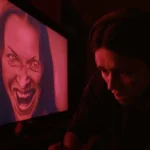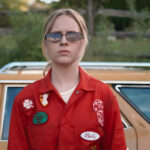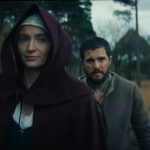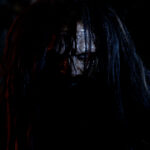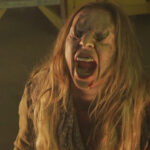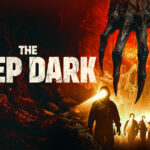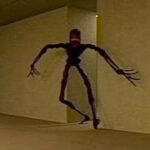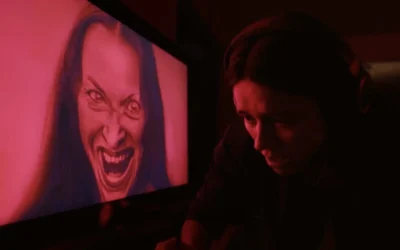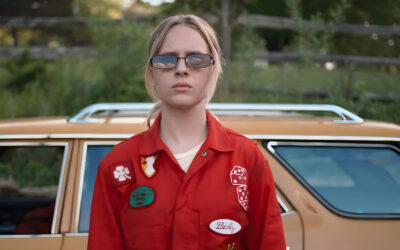Does Anyone Remember?
The Shining film has had plenty written about it. Spielberg made it a center plot point in Ready Player One, focusing on the fact that its creator, Stephen King, hated the film. I think that was a great scene, and far more entertaining in some respects than the actual film. You can read just one of many King articles on this HERE.
Cynema is not about film reviews. It’s looking at cynicism in filmmaking and entertainment. Kubrick’s translation of King’s novel has a certain amount of cynicism to it. After some online conversations, I thought I would get this out and off my plate. Was Kubrick a tad cynical in his vision for The Shining?

Nostalgia has given Kubrick’s “horror masterpiece” a free pass, in my opinion. Many forget that the film’s 1980 release saw tepid reviews and an indifferent reception. The film made money and did well on cable and home video where it went into entertainment rehab. To be fair, a number of films weren’t appreciated in their time and box office means little.
Over the past 30 years, The Shining was reinvented as one of the 25 most terrifying films ever made.
This is a nostalgia-fueled sentiment buoyed by the fact that it is one of the best MADE adaptations of a King novel. There have been numerous bad translations. Children of the Corn is a shining example– a short story badly adapted into a schlocky 1984 film with pre-Terminator fame Linda Hamilton.
Somehow that film has spawned over five sequels (to date) with talks of a reboot. Lord help us.
Disclaimer
I am on record with social media, interviews and even on The Howard Stern Show stating that I do not believe The Shining is a “bad” film. It is beautifully shot, magnificent to behold and made with the highest production values and care. It is a bad adaptation of its source material and it is a dull horror film and yet I will still list more positives of the film later in this piece. For the record, I don’t “hate” The Shining and I don’t think it “sucks.”
Page To Screen
The story goes that Stanley Kubrick passed over book after book to find his next project in the late 70s. He came across King’s best-selling novel, The Shining and eureka! That was his next project. For those of you unfamiliar with the book, it’s about a man’s slow descent into madness through alcohol and addiction.
The ghosts are very real in the novel and they torment Jack Torrence, breaking him from his sobriety and breaking him as a husband and father. Jack’s sanity unravels as he unravels more of the Overlook Hotel’s history. He goes further down a nightmare rabbit hole. It will transform him from a flawed man to a psychotic killer, possessed to do the hotel’s bidding.

Stanley Kubrick micromanages Jack Nicholson onset of The Shining.
Kubrick said he wanted to make an “anti-ghost story.” So my first question is: why make The Shining? That’s like setting out to make Jaws without the shark. Maybe he could’ve made Jaws an environmental film. You read the novel about a shark eating people over a July 4th weekend but you see a movie about three evil men hunting the poor, tortured fish who only wants to swim and eat and make little sharks.
Go off and make an anti-ghost story (whatever that is) and not call it The Shining. I can understand if this was some obscure little book, but it was a worldwide bestseller. It had a brand.
This is either high arrogance or cynicism on Kubrick’s part. “Oh, you loved the book? Great, because when you sit down in the theater you’re getting something so far removed from the book, you’re gonna hate it. I’m Kubrick. Stick that in your pipe and smoke it.”
How is this any different than the fan hate for Zack Snyder’s interpretation of the DC Comic universe, forgoing fan expectations and making superhero movies for himself?
The List: Jack
Stephen King is on record stating his opposition to Jack Nicholson playing Jack Torrence in the film. Basically Jack is playing Jack and he’s crazy from the start of the film. We feel he’s off, odd and creepy. Whether you read the book or not, Jack Torrence’s character never has any kind of arc. His slow descent into madness of the book is a quick slip in the film.

“Here’s Johnny!” is the most celebrated line in the film. That scene is the iconic meme for the poster and the first image that comes to most fan’s minds. The catch is, this is Jack Nicholson, not Jack Torrence. The entire movie is Nicholson being Nicholson. And while Nicholson is a national treasure of an actor, there is no depth to his performance in The Shining.
There is zero connection with his son, Danny. The boy loves his father in the book but in the film shows, at most, an indifferent respect for his father. At the end of the book, Jack makes the ultimate sacrifice, defying the hotel and killing himself to spare his son. The film ends with a long, stylish chase through a snowbound hedge maze with a rabid Nicholson yelling the kid’s name with the intent to kill him.

Nicholson is a sarcastic dick and a wise ass from almost the first scene. If we do like Jack, it’s Nicholson, not Torrence. He’s smiling Jack–eight years out from playing The Joker.
There’s no warmth for his son let alone his suffering wife. He’s cold. He looks like a homeless person that smells of booze and urine from the start. Where is the sympathy for Jack as the Overlook Hotel sinks its claws into him?
While some argue that’s just what Kubrick wanted, my answer is; good for Kubrick for making a movie just for himself. We just sit around for almost two hours waiting for Jack to go full tilt and give us the maniac we all know he is from the very beginning–because he’s Jack. Only then do many think that’s when the film finally gets entertaining.
Chemistry
I never bought the casting of Nicholson and Shelley Duvall. While I have always enjoyed Duvall in her other projects and a huge champion of her Olive Oyl in “Popeye,” I maintain she was woefully miscast against Nicholson in this film. There is no way I believe Nicholson and Duvall were together long enough to be married let alone produce a child together. Kubrick couldn’t have picked two more diverse actors to play a husband and wife, that in the book, love and need each other.
I know, I know…this is the MOVIE, Harrison. Get off the book. My reply is: tell millions of comic fanboys that when it comes to Man of Steel or Batman vs. Superman. Don’t quote source material if you’re going to kick it aside for convenience.

Nicholson’s Torrence is an alcoholic but doesn’t seem the least bit remorseful for the abuse of his wife and son. Kubrick took a strong female character in the book and made Wendy Torrence a simpering dishrag. Word has it that Kubrick mentally abused Duvall onset to the point she suffered permanent mental damage as a result. Whether this is true or not, the director showed contempt for Wendy Torrence/Duvall and it shows onscreen.
Without Jack Ya Got Jack
Jack is an asshole to his wife from their first scenes together in the VW Bug ride to The Overlook. She annoys Jack and she seemed to have annoyed Kubrick. Wait, just who are we talking about here? The real actors or the characters? See? You really can’t tell, can you?
Once again, there are no character arcs. Wendy briefly finds resolve after whacking Jack with the bat and locking him up, but from there it’s a screamfest run through the hotel and to the end. Why would a director and writer remove this important aspect from a story that is an allegory for the disintegration of the American family?
Ghosts or No Ghosts
Kubrick tried to prevent the actor Danny Lloyd from knowing he was making a horror film. Seems he did that for his audience as well. The legendary director said he wanted the film to play out as a psychological mind trip. Maybe there weren’t any ghosts. Was it was all in Jack’s head? Perhaps it’s about insanity.
So again, you pick a ghost story and make it without ghosts. Makes sense. Instead of Jaws without a shark, how about making The Godfather without The Mafia? Maybe we could see a version of Superman without the hero or possessing any real powers. That sounds great, doesn’t it?

In the final twenty minutes of the film there is confirmation that The Shining is a ghost story. Someone opened the pantry door that had been locked. That was Grady for sure. Wendy then sees images in her final run through the hotel and sees the blood gushing from the elevators that was also in her son’s visions. Ghost story confirmed.
While some may again argue that’s the genius of Kubrick, I say it’s a cynical indulgence and the movie should’ve never been called The Shining.
Was it a continuity error that Grady’s first name is at first said to be Charles, then later it’s Delbert? Is it the same Grady? Has to be…both chopped up their families with an axe. So is it a Kubrick mind fuck as a director play with Grady’s first name or did Kubrick fuck it up? Some call it genius, but imagine if it was an uncaught typo. Most of all, how does it add to the story?
Beautiful But Dull
When you think about the pacing of The Shining, doesn’t it seem like the whole movie was shot in slow motion? Even the way the characters speak their wooden dialogue is slow. The cars move slow. The walking is slow. Even Jack running through the maze at the end seems slightly on the slow side than fast manic side.
Defenders say “That’s what Kubrick wanted. To unsettle us. Make us on edge. Uncomfortable.” Maybe, but man the book provided much more entertaining ways to do that without boring the reader. We get the big “4PM” black screen titles with a thump of music to again…unsettle us, I guess?

Dear God, not “4PM!” That’s terrifying! Please don’t lecture me on aesthetic and directing and artistry. I get all of that. It doesn’t dissuade me from my belief that The Shining is a long, often slow, plodding movie. If that’s supposed to be part of its charm, then so be it.
Again, I am not saying it is a bad movie.
Pacing Part II
Scatman Crothers was the best casting in this movie. His Dick Halloran was warm, fatherly and a delight. It was like they plucked him out of the book and dropped him into a version he didn’t belong. Scatman’s shining chef is the only source of real warmth in this film.
That said, Kubrick decides to go through the trouble of setting up his only character with an arc and then kill him off after a trek through most of the third act. Get him from Florida, travel through the snow-choked roads and then kill him less than ten minutes after arriving.

“But that’s the genius of Kubrick!” the defenders yell. Halloran plays the fatherly proxy to Danny while the boy slowly loses his father. Halloran is the anti-Overlook force. The Hotel might actually fear him as it surely does the boy. The only problem is, none of this is explored in Kubrick’s adaptation.
Instead we have Crothers introduced, bond with the boy and never connect with him again. The only real interesting character who could’ve provided some great detail to the history of the hotel is used as the film’s only kill. What a rip off.
So What’s Good?
The Overlook Hotel
There were numerous things well done about the film, but perhaps the best thing Kubrick did was make a real villain out of The Overlook Hotel. From the exterior of the building to inside, the building reeks menace and evil. You can feel it. Kubrick made it palpable. The real Stanley Hotel that King based The Overlook upon is not a scary looking building. It’s quaint and old timey.

Kubrick’s choice to go with the hotel style we got was dead on. The exterior of the hotel looks like some giant bat-winged dragon, perched atop its mountain, ready to eat anyone who comes near. His choice to make the interior like a maze, with rooms that couldn’t possibly fit inside was excellent. The Overlook Hotel is scary as hell and you never knew what was going to be around a corner.
So why not go full force with the ghosts and give us really scary events to utilize this set properly? Why play subtle or even resist your ghosts when you gave them such a wonderful playground?
The Photography
My God this is a beautiful looking film. It would look great on an IMAX screen. The film is huge in scope, lit to perfection and totally atmospheric. It is just gorgeous and one of the best produced King adaptations ever.

The Score
Is this really music? It was breakthrough and unsettling from the opening moments. I remember the TV spots scaring the shit out of me as a kid because of the music. To this day when I watch the film it is the score that unsettles me the most…well that and the woman in the tub. Jesus Christ that still scares me.
The score is the The Overlook’s black soul and the madness inside Jack’s head.
The Ghosts
When they do show up, they bring it. As I said above, the entire scene in Room 237 is still scary and wonderfully executed. The woman in the tub is a truly disturbing image and gives Nicholson a run for his money in sheer lunacy. It is a maddening scene and to this day creeps me out.

The sisters were scary but have become way overrated and overused in the Internet world. They’ve become meme parodies of themselves. They weren’t really twins. That means nothing. Creepy yes, and probably used at the right amount.
Grady and the dog costume guy images were also creepy and weirded me out the first time I saw it. I mean, the dog guy was blowing the dude in the tux. This hints at the debauchery going on behind the scenes in the long history of the hotel. The Overlook has a dark past and it keeps it within its superficially stodgy, upper crust walls.
Brilliant.
So when Kubrick does decide to give us a ghost story it fires on all cylinders. When he plays coy we get a slow moving thriller.

The Set: Interior and The Maze
Kubrick’s decision to forgo the animal hedges and go with the maze was a good departure from the book. Aside from the fact that it would not have rendered well with the technology available back then, I found it a silly part of the book and not all that threatening. The Maze is truly Gothic and scary and adds to the lost feeling Kubrick was going for. It also provided a great ending device if only it was used to better effect.

The scene where Danny and Wendy walk the maze with Jack inside looking down on the model of the maze is cinematic-ally breathtaking and I still wonder how they did that so seamlessly.
The set construction for the interior of The Overlook, as stated, was meant to confuse us. How could The Gold Room ballroom fit inside this place? It’s like the walls have no real boundaries and the hotel can expand and change at will. It adds to the entire mind screw that I think Kubrick intended.

So In Sum
Creepy. Eerie. Sometimes disturbing. Beautiful. Well-made.
Terrifying? No.
Good translation of a Stephen King property? Nope. It’s a pointless exercise.
Often slow. Miscast. Plodding. Indulgent.
Cynema? Yes, to some extent. It had contempt for its source material and audience fanbase and had all the means to do better.
Paradoxically we did get a good film out of it, and I think that’s a fair assessment.
Listen to my Cynema podcast found on iTunes, YouTube, Stitcher, Spotify and iHeart Radio.


